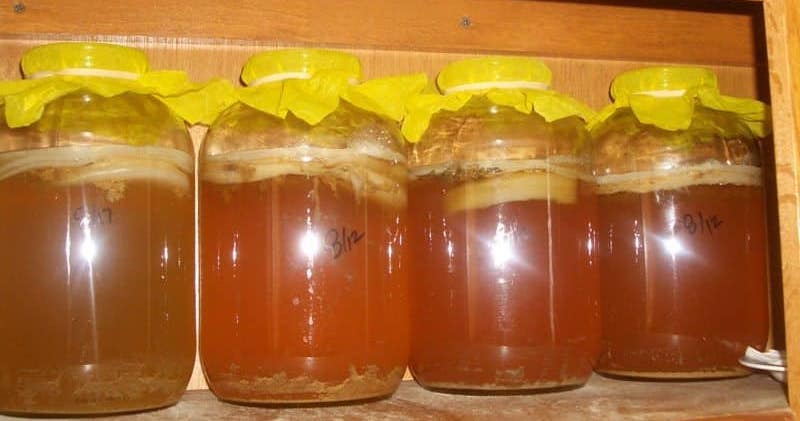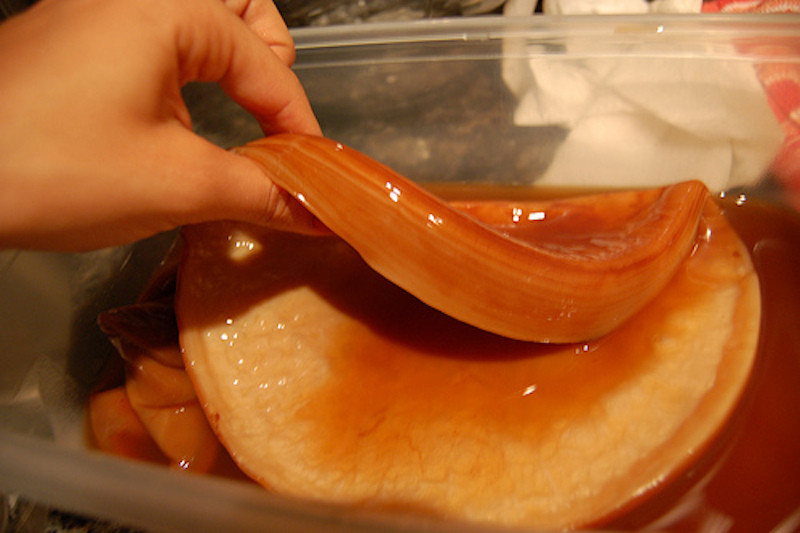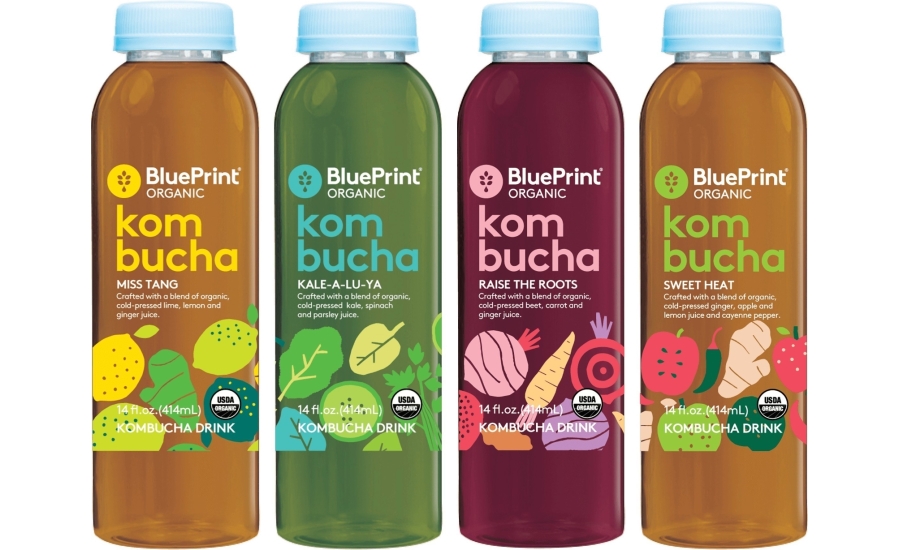The fermented tea drink has been around for centuries but recently became popular in the U.S. because of its purported health benefits. Regular drinkers of the tonic claim it aids digestion, sleep, weight loss and detoxification; stimulates the immune system, prevents cancer, stops hair loss, and improves liver function.

So what is Kombucha?
Often referred to as mushroom tea, kombucha is not made from mushrooms, but the bacteria and yeast that grow on top of the beverage result in a blob that resembles a mushroom. It is made by adding bacteria and yeast to sugar and black or green tea and allowing the brew to ferment. Yummy 🙂
At first taste, kombucha tea tastes somewhat earthy, tart, with a little effervescence and a vinegar-like smell—maybe not so pleasing to the taste buds. To make the tea more palatable, juice is added to the base brew. But if you look a little closer, you notice little floating bits of bacteria in the unpasteurized beverage. Drinking four ounces daily of commercially available pasteurized kombucha tea is generally considered safe for healthy people. However, it would be prudent for pregnant women, elderly people, children, and anyone with a compromised immune system to avoid it.

Bottom Line
The claims are greater than the science can prove and the safety factors require careful consideration. Drink it in moderation if you enjoy it; be warned, it may be an acquired taste. And don’t drink it because of the overstated benefits. Kombucha is not a cure-all or magical elixir, but it does have some beneficial bugs similar to yogurt, kefir, or other probiotics that contribute to a healthy gut.
From Wellness Mama Magazine:
The most logical concern I’ve seen with kombucha is its potential to cause dental problems. Since it is high in natural acids (but still lower than most sodas), it can be harmful to the teeth. OraWellness wrote a great article on the specific way kombucha affects teeth and how to consume it without harming your teeth. These include: drink it all in one sitting, don’t sip it throughout the day, and swish with clean water (don’t brush your teeth) right after.
Denise’s
 2 Cents:
2 Cents:
What is becoming clear is that, as we age, the digestion of food sometimes becomes compromised. So even with “perfect” attention to your food choices, certain genetic tendencies can contribute to nutrients not reliably translating into energy (remember food=energy). Your liver and/or spleen might not work ideally now, so even if you consume wonderful food, the body may not efficiently digest it into the best energy. Hence the big “probiotic” trend to add healthy bacteria to help digestion.
Kombucha seems to accomplish that for some—just remember it has alcohol and also may not be ideal for pregnant women. There have been more issues with homemade kombucha and production safety. I do think it will soon fade as a FAD, (mostly because of it’s taste), even though a percentage of people (maybe 3 out of 10) may benefit greatly. And be sure to heed the teeth suggestion if you drink it daily (see above).
Denise Gaylord
Personal Trainer & Challenge Coach
Provincetown USA
